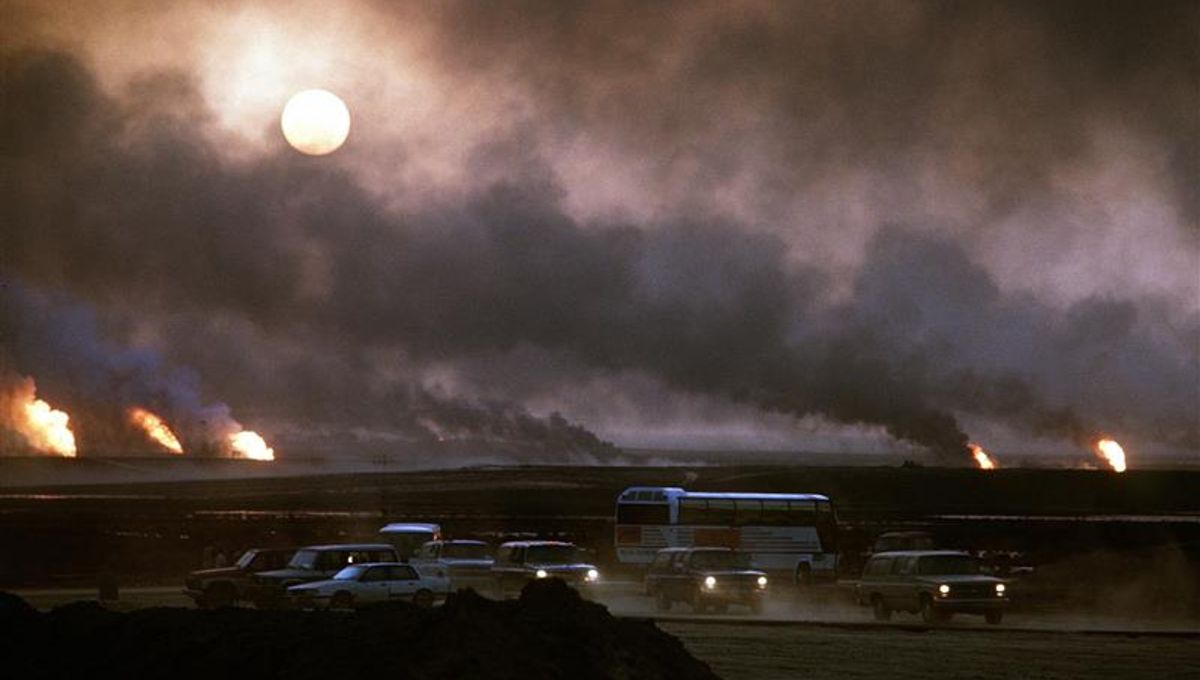
For the first time, researchers have discovered a potential explanation for Gulf War Illness (GWI), a condition that has afflicted many veterans of the 1991 Gulf War. The condition is likely caused by intense exposure to hazardous chemicals and biological agents at the time.
GWI, or sometimes Gulf War Syndrome (GWS), is a chronic, debilitating, and multisystem disorder that affects those who served during the Gulf War. Between 1990 and 1991, 42 countries, including the US and the UK, formed a coalition to fight Iraq after its then-President Saddam Hussein invaded neighboring Kuwait.
The coalition forces consisted of nearly a million defense personnel engaging in combat, many of which were exposed to various hazards, both known and unknown. These included environmental stressors, as well as biological and chemical agents like insecticides, pesticides, insect repellent, nerve agents, smoke from oil well fires, and even depleted uranium.
At the time, defense personnel were given certain prophylactic measures to help combat or prevent the worse issues, but even these contributed to the cocktail of chemicals and biological agents their bodies were exposed to. Over three decades later, it is estimated that somewhere between 25 to 32 percent of veterans continue to experience health issues as a result of their exposure.
Generally speaking, GWI presents with a number of symptoms, these include chronic fatigue, hypertension, pain, inflammation, sleep disturbances, rashes, diarrhea, neurological and cognitive impairment, and respiratory disorders. However, not all GWI patients will experience all of these symptoms, which can make diagnosis difficult, causing more stress for those living with it.
For a long time, no one knew exactly what caused GWI. There have been various hypotheses, but many have been ruled out over the years. Now this new research offers some important and tangible answers to this decades-old mystery,
“The findings from our research provides clear scientific evidence that the health problems experienced by Gulf War veterans can be directly linked to their exposure to specific hazardous agents during their service”, Professor Sonya Marshall-Gradisnik, the director of the National Centre for Neuroimmunology and Emerging Disease (NCNED) at Griffith University, Australia, said in a statement.
According to Marshall-Gradisnik and colleagues, cell structures integral for transporting calcium into cells, called transient receptor potential ion channels, are defective in veterans with GWI. Normally, calcium ions serve as signaling molecules within cells; they play a crucial role in regulating essential functions such as muscle contraction, nerve function, and hormone secretion.
“Our study reveals a crucial dysfunction in cell ion channels, specifically the transient receptor potential ion channels, in veterans with GWI”, Marshall-Gradisnik added. “This discovery is a significant step forward in understanding this baffling and complex illness.”
The team’s findings represent a crucial step in demystifying GWI as it offers tangible scientific evidence that validates the experiences of so many people. As Gulf War veteran and GWI advocate Ian Allwood stated, “To be believed means the world to us”.
“For those in the Veteran community that have been suffering, this is the first step in identifying a causal factor,” he said. “This is groundbreaking research that will hopefully open pathways to treatment for the often-debilitating symptoms. Our veterans were prepared to lay their lives on the line, representing Australia, in the name of freedom. We owe them a debt of more than gratitude. They have suffered injury as a direct result of their service.”
It is hoped that this new research will serve as the first step for future research that not only continues to investigate what is going on in the cells but also offers therapeutic strategies to treat and manage GWI.
The study is published in the journal PLOS ONE.
Source Link: Gulf War Illness Breakthrough Offers Hope After Condition Perplexes Doctors For Decades